“We are British too”: Racism against Asian and Black Communities in Britain
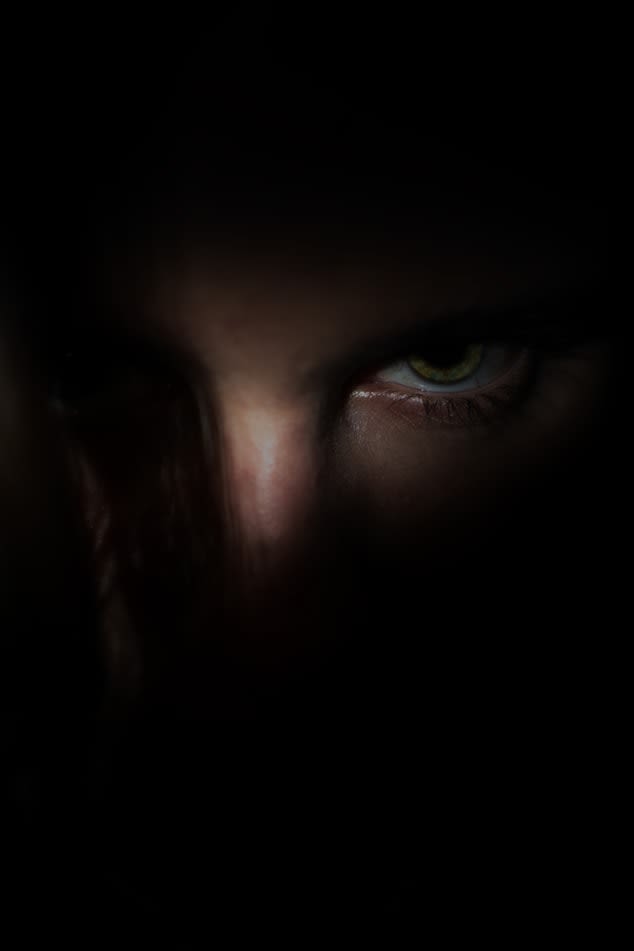
For non-white British people in the UK, there is a sad truth that you are increasingly more likely to be racially abused for the colour of your skin.
Hate crime has been on the rise since 2012/13 when it recorded 39,130 offences compared with the 105,090 recorded in 2019/20.
From all hate crimes recorded in 2019/20, almost 75% of them (76,070) were attributed only to race hate crimes by the police in England and Wales, excluding Greater Manchester police, according to Home Office data.
Although growing awareness and improvements on police crime recording are the main drivers behind the increase, recent events seem to have contributed to more hate crimes too.
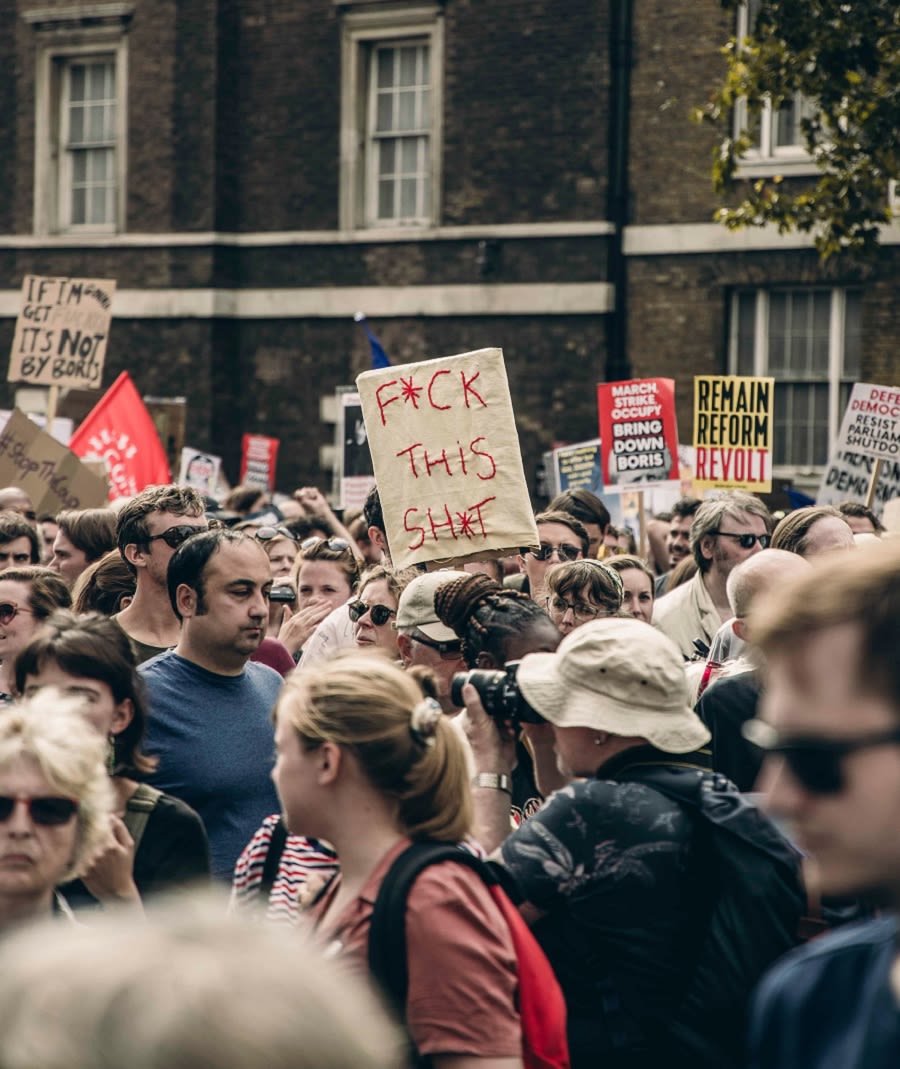
Racism and xenophobia against EU citizens went up after the Brexit referendum. ©Unsplash
Racism and xenophobia against EU citizens went up after the Brexit referendum. ©Unsplash
Racist hate crimes went up once again in 2020 caused by the far-right counter protests against the Black Lives Matter demonstrations across the UK following the death of the African-American George Floyd on May 25 in the United States.
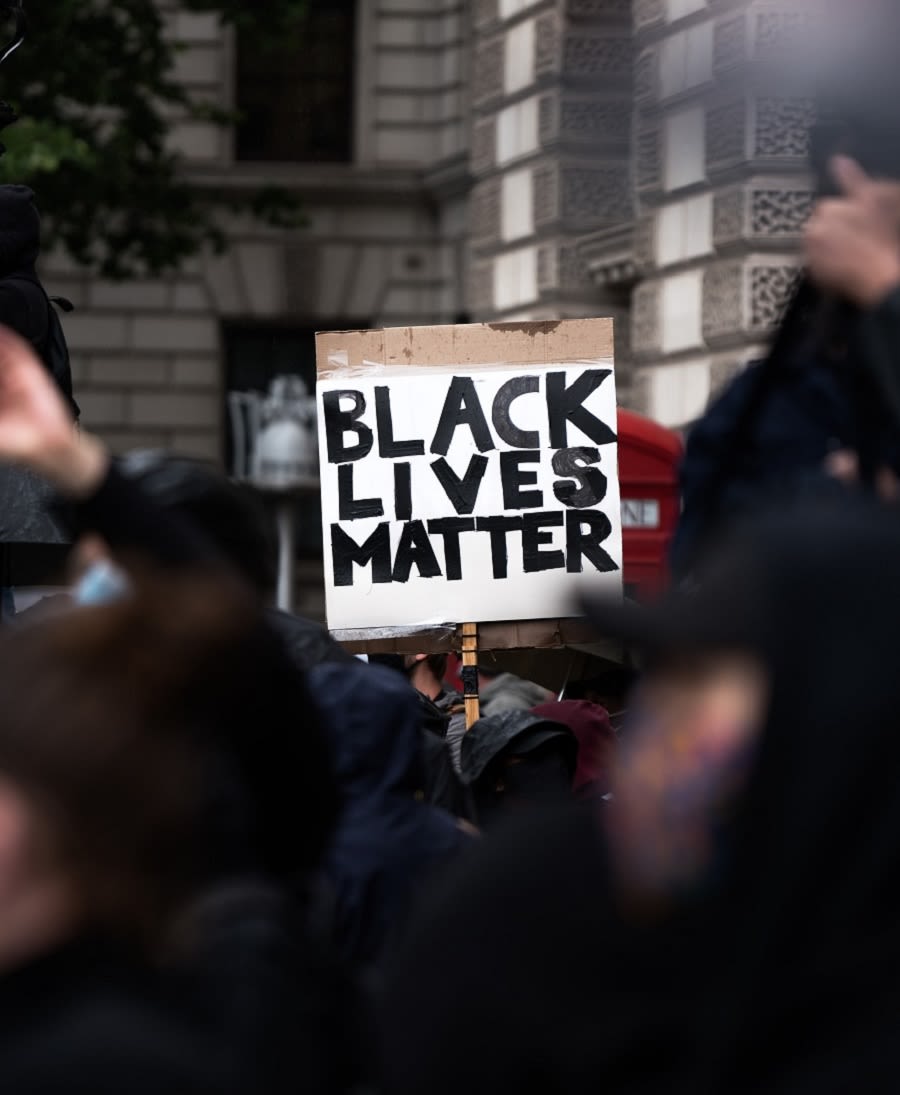
The anti-racism movement Black Lives Matter has led to an increase in racist attacks from British far-right groups. ©Unsplash
The anti-racism movement Black Lives Matter has led to an increase in racist attacks from British far-right groups. ©Unsplash
And now, the Covid-19 pandemic is being used as a justification to vilify the British East and South East Asian (BESEA) community, even when some of their members were born and bred in Britain.
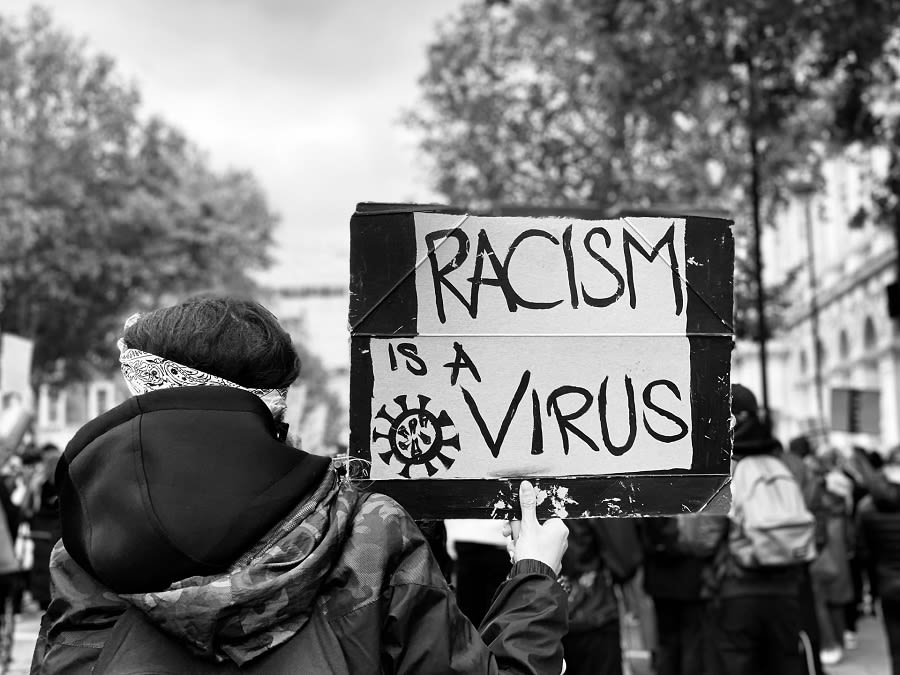
Covid-19 became the ultimate demonstration of racism in the West. ©Unsplash
Covid-19 became the ultimate demonstration of racism in the West. ©Unsplash
The accounts below belong to four people from different ethnic minorities who recently experienced racism in Britain.
They had the courage to share their stories with me hoping Britain, a place they call home, one day understands they are British too.
David Tse and Pek-San Tan
During the first lockdown, David was running near his home as part of his daily exercise in Central London when he was verbally attacked.
A panicked white young English woman walked on to the empty street to make way for him and after he went past her she suddenly shouted: “F*** O**! Back to China!”
He stopped to tell her he was British, but she insisted: “F*** u and your F***ing virus!”
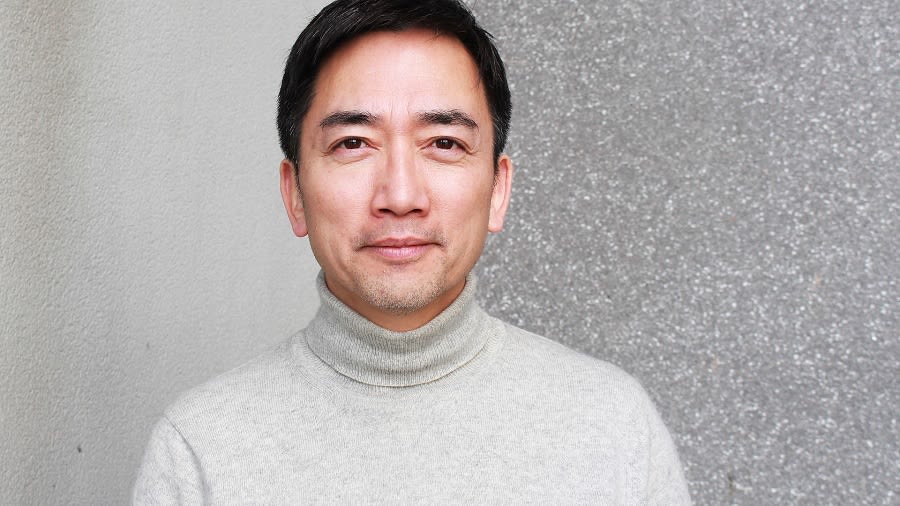
David: "We are British but we’ve been made the scapegoat. We’ve been blamed." ©David T-se
David: "We are British but we’ve been made the scapegoat. We’ve been blamed." ©David T-se
Racism against BESEA people is nothing new, but because of coronavirus being first reported in Wuhan, China, they feel their community has become a scapegoat in the West.
‘Chinese virus’ or ‘China Plague’ are terms President Donald Trump deliberately used to refer to Covid-19 in the early months of the pandemic.
According to anti-toxicity online firm L1ght, hate speech against them increased on Twitter by 900%, and visits to hate sites and to specific posts attacking Asians went up to 200%.
David, an actor and a core team member of the Covid-19 Anti-Racism Group (CARG) set up to push back coronavirus misinformation, said: “We should never politicise a disease. In the UK we had Mad Cow Disease because of bad farming practices.
“We didn’t call it the British Mad Cow Disease. They shouldn’t call this the China virus because that is politicising and it is totally wrong.”
Another Vaccine just announced. This time by Moderna, 95% effective. For those great “historians”, please remember that these great discoveries, which will end the China Plague, all took place on my watch!
— Donald J. Trump (@realDonaldTrump) November 16, 2020
Whether intentionally or not, British media also seem to have played a role in spreading prejudice against BESEA people when coronavirus first arrived in Britain.
Research shows the incendiary language used by western politicians and media misrepresentation led to 267 offences against the BESEA community between January and March 2020, compared with 375 hate crimes in the whole of 2019 and 360 in 2018.
@BBCNews @BBC_HaveYourSay could I have a point of contact so we can discuss this? Unconscious /Conscious Bias of East Asian faces featured in Covid related articles . Are having an subliminal effect on the ignorant and spiking hate crimes towards East Asians in the U.K. https://t.co/vmK5aqD5V7
— Benedict Wong (@wongrel) November 3, 2020
A Daily Mail online article used a picture of an elderly Asian man wearing a mask when it reported Prime Minister Boris Johnson was seriously ill with coronavirus.
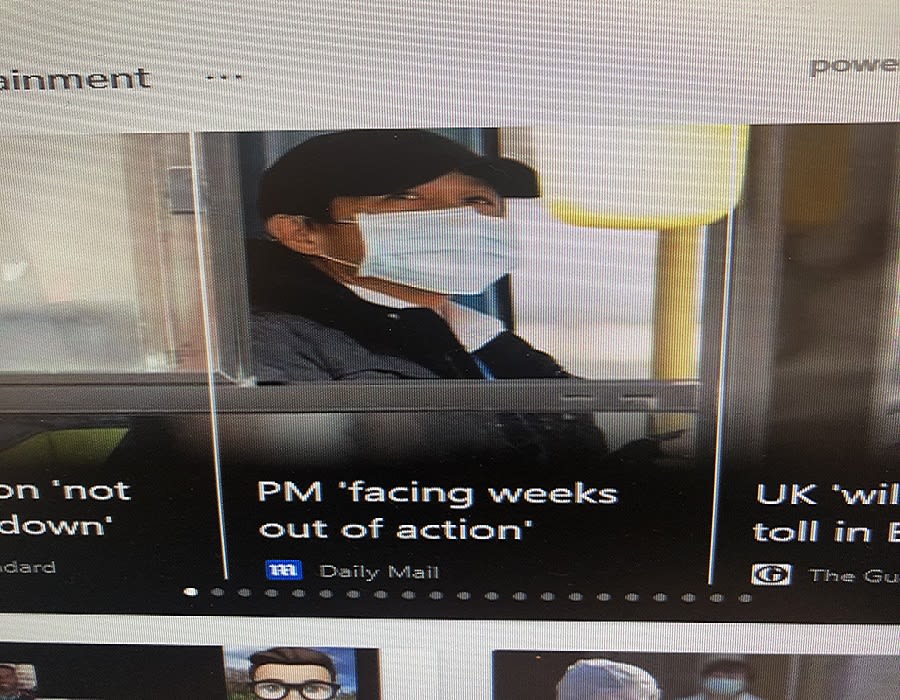
Pek: "You can't be putting cultures and countries and people's faces as the main association with Covid-19."
Pek: "You can't be putting cultures and countries and people's faces as the main association with Covid-19."
As British born Pek-San Tan, head of press for the London Chinatown Chinese Association and also a CARG core team member, explained: “I am not in the mind of editors, but to me the imagery does not correlate with the body of text that comes with that report.
Is this China starting to make reparation for infecting the whole world?
— Allison Pearson (@allisonpearson) March 14, 2020
After this is over we urgently need to re-evaluate our dependency on China. https://t.co/2ZPqS9PINS
“A virus is a disease and if you are reading scientific reports you can’t just vilify one people by putting an image of an East Asian face with a mask, and associate that with Covid. I am exasperated.”
A 2020 YouGov poll showed 76% of Chinese had a racial slur directed at them compared with 64% among BAME respondents.
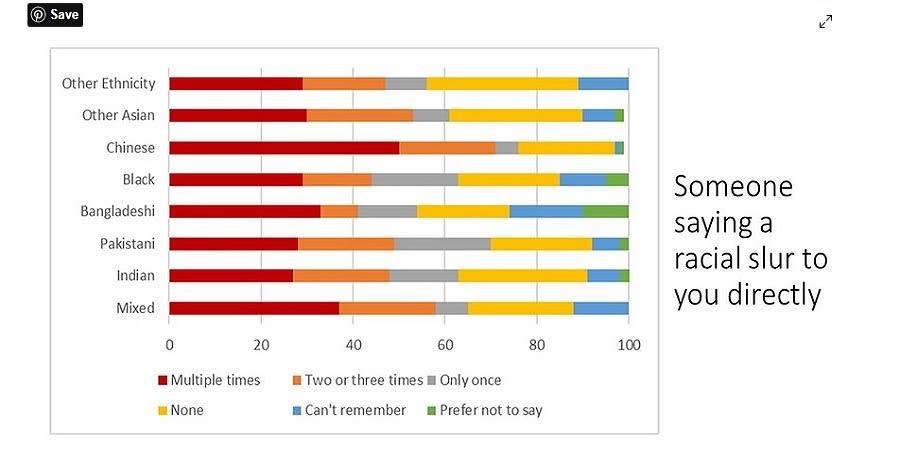
Earlier this year, Pek was verbally abused by three girls aiming offensive words at her on the Tube because of her Asian appearance.
A short time after that, she was racially attacked once again when she got coughed on deliberately while reporting the underground incident to British Transport Police.
She said: “If I didn’t feel this country is my home, I wouldn’t be standing up for those I feel don’t have the courage to voice it or to voice themselves.
“Obviously, I’m disappointed by the experiences I’ve encountered because these are my fellow neighbours and it saddens me our country can come to the state where victims are so deeply victimised.”
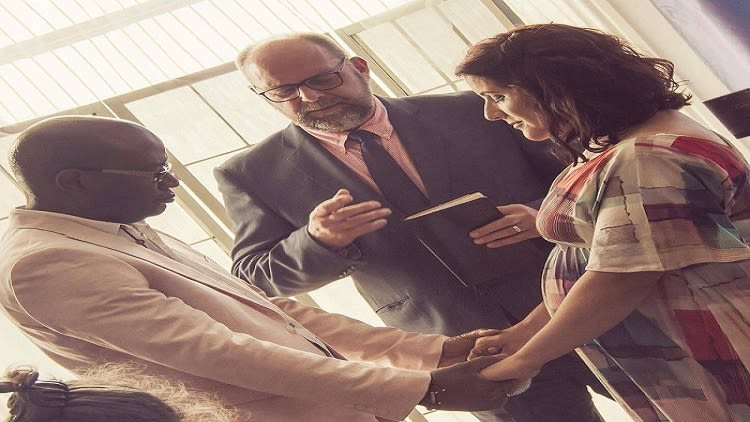
Lowellyne and Sian getting married in their living room last year. ©Sian Young
Lowellyne and Sian getting married in their living room last year. ©Sian Young
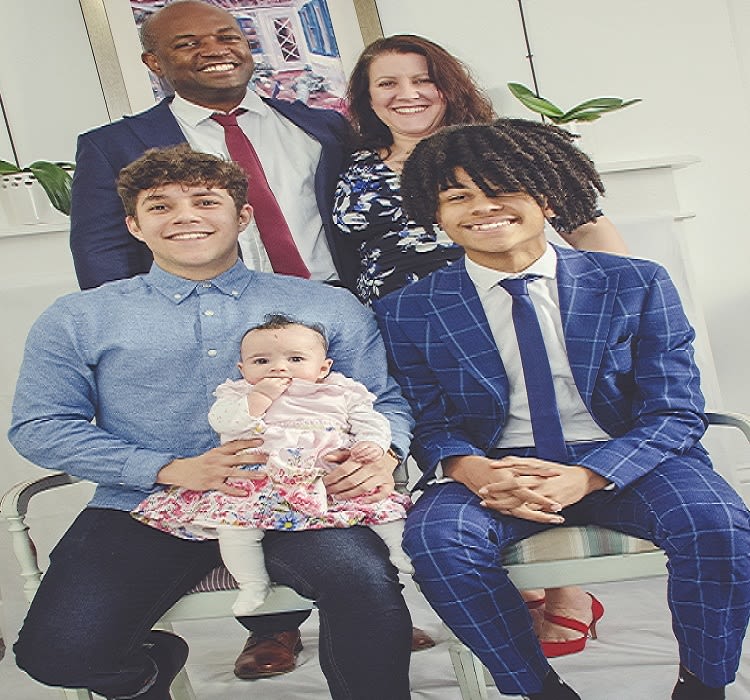
Lowellyne: "Why did it take three weeks for the police to come into my door? I just wanted to protect my family!" ©Sian Young
Lowellyne: "Why did it take three weeks for the police to come into my door? I just wanted to protect my family!" ©Sian Young
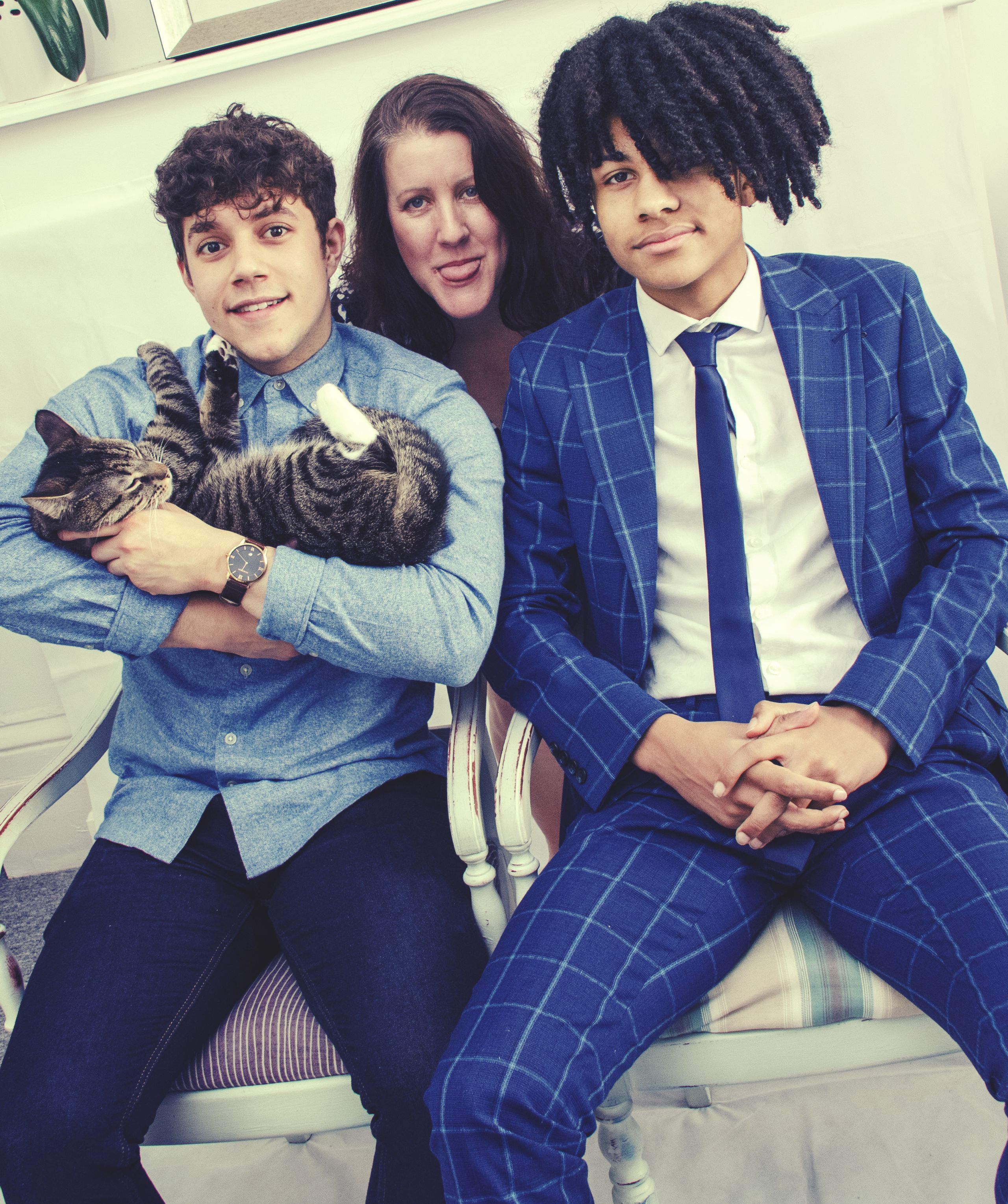
Sian and Lowellyne's children. ©Sian Young
Sian and Lowellyne's children. ©Sian Young
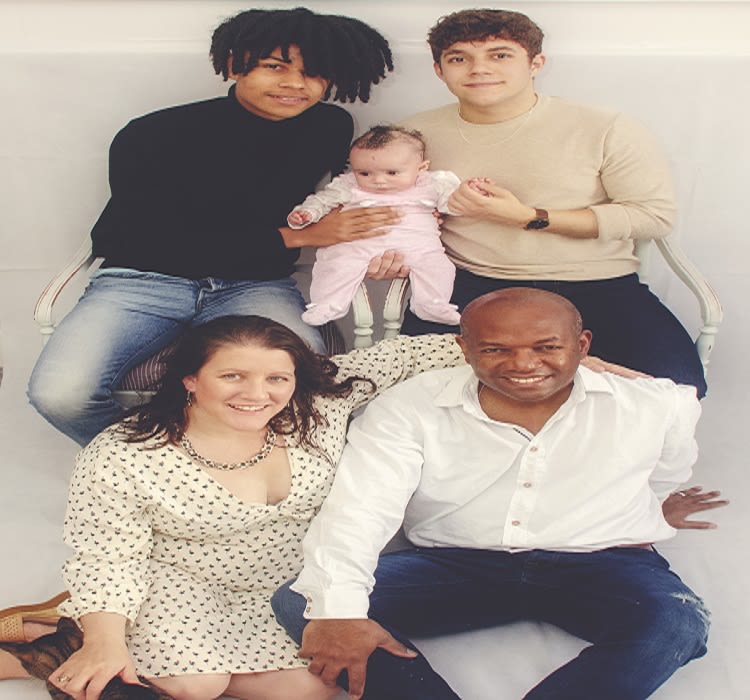
Lowellyne: "All I am asking is equality. I am not asking for revenge, retribution or compensation." ©Sian Young
Lowellyne: "All I am asking is equality. I am not asking for revenge, retribution or compensation." ©Sian Young
Lowellyne James
For some, mixed-race families still continue to be as controversial as in the early twentieth century, when they were regarded as an abomination that needed to be stamped out of Britain.
Last year, Lowellyne James, 44, originally from Trinidad, was verbally abused numerous times between July and August in Littlehampton, West Sussex where he lives with his white wife Sian Young and children.
It all started with baseless neighbours’ allegations of Lowellyne’s teenage mixed-race son, from a previous relationship, smoking marijuana in the building they live in.
Then, a banging on one of their walls followed by slurs against Lowellyne being a ‘barbarian’, a ‘black paedophile’ and a ‘black bastard’, almost caused Sian to miscarriage.
The final straw happened while Lowellyne and Sian, who got married about a year ago, were having a sunny barbecue in their home garden when the same individuals lambasted him again: “Go back to Africa. You are barbarian. You are less than human. You are not civilised. You lack civilisation.”
Lowellyne's parents gave him a Western name to make sure that one day his origin would not hold him back in job applications or to put it more bluntly, to avoid that his CV ‘wouldn’t be thrown in the bucket’, as Sian tells me via a Zoom conversation.
Now he is a sustainable strategist with two written books and currently raising a sustainable centre with Sian to help small businesses.
His 40-year old wife tells me that when they went to conferences together before the pandemic, people looked around him for someone else called Lowellyne.
“They couldn’t believe a man like him standing up in front of them can have such a name,” she says.
Lowellyne, with Welsh connections through slavery and with a great-great grandfather as an overseer on a plantation, said: “When you come from a family that happens to be Black or Afro American, you are trained to ignore some potential scenarios and confrontations at all times because it will always end up wrong for you.”
Despite serving in the British navy for at least six years and putting his life on the line for this country, as he says, he feels the UK doesn’t love him as he wishes and instead has been treated with contempt just because he is black.
Even if he were originally from Britain, he admits, he’d still be an easy target of white supremacists for the colour of his skin.
Joyce Mukoko
Joyce’s father is French, but her parents are originally Congolese and for Joyce, who was born in England, they still have a gullible view of what life can be like for ethnic minorities born in Britain.
Until recently they believed if you were born in this country then you would be considered equal to white people in Britain and would therefore be saved from the discrimination and racism they, as immigrants, have had to put up with in their lives.
But much to their chagrin, they were shocked to death when they learnt two of their British born daughters had just been racially abused near home in June last year.
It happened when Joyce, 23, stood up for her underage sister after a middle aged man who identified himself as a war veteran vilified them in public for being black.
The incident took place in a lift of a Colindale department store in north west London where the girls went to buy a birthday cake for a relative.
Joyce said: “The man was giving my sister a look as if he was disgusted at the fact she was in the lift with him instead of a white couple who couldn’t get in.”
As soon as Joyce and her sister were outside the lift, the man started shouting the N-word towards them.
She said: “He went on to say ‘I am tired of you being here’, ‘we black people are ignorant, useless and don’t contribute to society’.
“We felt incredibly uncomfortable as he got closer to us, so I started recording him to have evidence of what was going on,” remembers Joyce, who after doing a BA in criminology is now completing an MA in Criminal Justice Policy at London School of Economics hoping one day she will be able to bring policies that will protect people like her.
Some people tried to stop the man telling him ‘Don’t speak to them like that’, but he didn’t listen and as he was really close to their vicinity, the girls simply couldn’t get away from him.
She found shocking that the security guy, who was an immigrant, came up from the department store almost half an hour later to stop her from recording instead of stopping the aggresor.
Joyce said: “He didn’t want to get victimised either so the easiest thing for him to do was to target me rather than approach the man and try to calm him down.”
Other members of the public simply stared at her and made her feel as if she was doing something wrong despite the guy clearly offending her and her sister.
Joyce remembers there was a lot of shock and confusion at home and told me her parents would have preferred this to be happening to them instead of their daughters.
When the police arrived, the aggressor had long gone, but the girls were taken to the car park of the building, away from people.
Police saw the recordings, noted down everything that had just happened but told Joyce that taking the matter further would be a longer tale she’d rather avoid because nothing apart from a verbal attack happened to her.
She said: “They didn’t know if it was worth going ahead with finding an official complaint against manners and added this was an old man and that he would probably get let off.”
Are police doing enough to tackle race hate crimes?
Despite not knowing each other, Joyce and Lowellyne agreed that police lacked interest in their cases.
At first, Joyce thought police were being realistic, but now she feels police could have done much more than just discouraging her from taking legal action not least because what she went through was a race crime.
According to The College of Police (CoP), a race hate crime means: “... any criminal offence which is perceived, by the victim or any other person, to be motivated (wholly or partially) by hostility or prejudice based on a person’s race or perceived race.”
Sian’s recording of the incidents was enough proof to take the offenders to court which eventually imposed on them community service and a restraining order.
But it took police three weeks to go to Lowellyne’s house despite being urged to assist them earlier.
The verbal attack on her husband ruined Sian’s home birth plans and she ended up needing a caesarean when she was seven months pregnant.
She said: “I got scared because I could not run away from an attack when I was 7 months pregnant!
“Because I have PTSD from street life this made me close my body down and I would not let my baby come out. This is why I ended up with an emergency C-section!”
Lowellyne said: “I know how the police would've responded if I had taken physical action. I am very certain they would’ve come earlier and they would’ve arrested me,” says Lowellyne while Sian holds their baby in her arms walking to and fro behind him.
As far as CARG members are concerned, they have already signed a petition calling on the government to condemn racism against them.
Politicians have a duty to lead by example. There should be no place for racism in our society. @Chinese4Labour @besea_n @EndRacismVirus and @IBVprev are instrumental to ending racism against Chinese, East and South East Asians. Please support their work #HateCrimeAwarenessWeek pic.twitter.com/YaNN6zmm9x
— Sarah Owen MP (@SarahOwen_) October 14, 2020
They seem determined to put an end to it, or as David put it: “We are British and we are going to stand up for ourselves. We are not going to take that kind of racist nonsense.”
When the Met Police was contacted for a comment, a spokesperson said: “The Met takes all reports of hate crime extremely seriously, and we work with partners to support victims and identify offenders.
“While there has been a rise in the number of hate crimes reported which may be due to victims feeling more confident and empowered to report incidents, there is still work to be done.
“We would urge anyone who has experienced hate crime and not spoken to police to come forward – we will take it seriously.”
The Democratic Football Lads Alliance, considered by its critics a far-right group, was also contacted, but didn’t respond to a request for comment.

